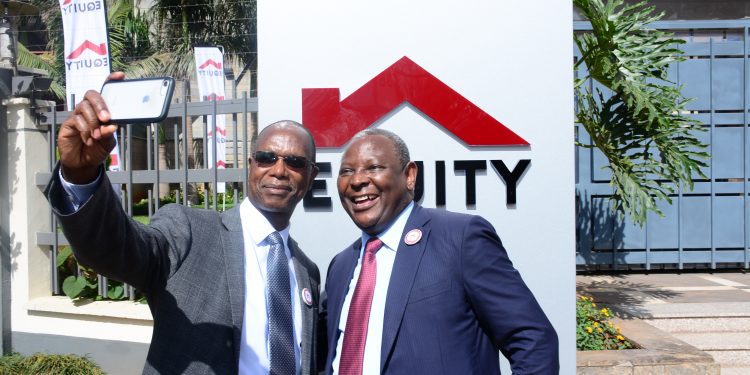Equity Group has reported a 30% growth in its loan book from Kshs 348.9 billion in September 2019 to Kshs 453.9 billion as at 30th September 2020.
While releasing the results for Q3 2020, Dr. James Mwangi, Group Managing Director and CEO said, “We grew our loan book by 30% year on year in order to support our customers who saw opportunities of green shoots and diversification in the COVID-19 environment. Most of the new opportunities we funded were in manufacturing of PPE’s, logistics, online businesses, agro- processing, fast moving consumer goods and agriculture value chains.”
Execution of Equity Group’s twin strategy of being defensive and offensive has proven to be effective despite the challenging environment. Customer deposits registered a 45% growth from Kshs 478 billion to Kshs 691 billion driven by 51% growth in Uganda, 21% growth in Kenya and an additional Kshs 130 billion from the acquisition of BCDC in DRC.
Loans to customers grew by 30% driven by 37% growth in Uganda, 19% growth by Equity Bank Congo, 15% growth in Rwanda, 15% growth in Kenya and an additional Kshs 48.5 billion from the acquisition of BCDC in DRC. The growth in capital weighted loan book and capital geared customer deposits was on the back of a 27% growth in shareholders’ funds following withdrawal of Equity Group
Holdings’ 2019 dividend payout. The balance sheet of the Group grew by 38% from Kshs 677.1 billion to reach Kshs 934 billion.
Regional expansion and business diversification efforts have reduced dependence on Kenya for Group performance making the Group truly a regional financial services provider. Regional subsidiaries now contribute 40% of customer deposits, 39% of Group total assets, 33% of the loan book, 30% of the Group’s revenue and 25% of the Group’s profit before tax.
On the defensive strategy the Group increased its capital base by 27% to Kshs 137.6 billion from Kshs 108.7 billion to fortify the balance sheet. The Group’s liquidity position strengthened to 55.7% driven by a 61% growth in cash and cash equivalents and a 34% growth in Government securities.
Maintaining its conservative and prudent approach and in recognition of the challenging operating environment, the Group increased its loan book provision eleven-fold from Kshs 1.3 billion to Kshs 14.3 billion compared to the same period last year, registering a cost of risk of 4.8% up from 0.8% the corresponding period last year. To further consolidate
liquidity, the Group increased its long-term funding by 7% to Kshs 70.7 billion from Kshs 66.3 billion as shareholders funding grew by 27%.
In its defensive strategy, Equity has worked to support the larger society, communities and customers to weather and mitigate the adverse effects of COVID-19, Equity Group boosted government efforts of containing the pandemic by:
(1) Waiving fees on mobile banking transactions to discourage the use of cash while incentivizing the use of digital channels;
(2) Utilizing the expertise of Equity Afia medical team to screen body temperature of customers and staff accessing physical premises including bank branches while supporting COVID-19 health education;
(3) Leading nationwide initiatives to safeguard frontline health workers through the provision of PPEs and mental wellness and psychosocial support training by the Equity Group Foundation at a cost of Kshs 1.3 billion.
(4) Providing loan repayment accommodation and rescheduling for up to 45% of the customers whose cashflows were deemed likely to be negatively impacted by government set COVID-19 containment measures.
(5) Supporting staff to cope with the challenges associated with COVID-19 while maintaining a conducive working environment to comply with health protocols and offering choice of working from home were possible. Equity Group has endeavored to leverage on the opportunities that present within the COVID- 19 crisis, especially for customers. We chose to seize the opportunities which have presented themselves through the pandemic, most notably for our societies and the world to build back better, and to build a more ethical and equal operating environment for all in Africa who have been left out of the established systems.





